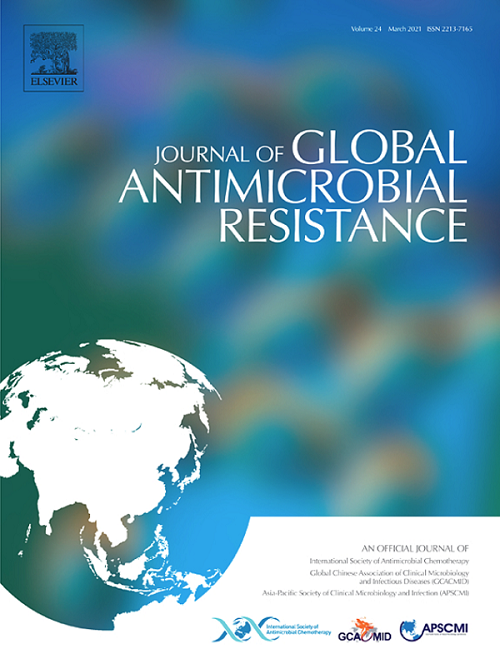Enhancing access to antimicrobial resistance diagnostics for the marginalised: Challenges and opportunities of point-of-care technologies
IF 3.2
3区 医学
Q2 INFECTIOUS DISEASES
引用次数: 0
Abstract
Objective
Inadequate access to antimicrobial resistance (AMR) diagnostics remains a critical challenge, particularly in low- and middle-income countries (LMICs). Despite various global policy commitments, translating these policies into practice is restricted by socio-economic barriers, technological limitations, and infrastructure gaps.
Methods
Based on ongoing empirical work in India under EquityAMR, diagnostic inequities were examined in two contrasting states.
Results
The spatial analysis demonstrated disproportionate diagnostic services, due to urban-rural and hilly-plains regions. Further laboratory assessments across 14 health institutions in these two states highlighted critical gaps in testing capacity, quality control, equipment, and data management. In addition, the potential of existing point-of-care technologies in expanding access were examined based on WHO criteria of clinical preparedness, scalability, and sustainability, although none were considered suitable for all three criteria.
Conclusions
The study concluded that by arguing in the current scenario, traditional culture-based microbiology facilities can be established in sub-district facilities with some success in expanding access.
促进边缘化人群获得抗微生物药物耐药性诊断:即时护理技术的挑战和机遇。
获得抗微生物药物耐药性(AMR)诊断方法不足仍然是一项重大挑战,特别是在低收入和中等收入国家。尽管有各种全球政策承诺,但将这些政策转化为实践受到社会经济障碍、技术限制和基础设施差距的限制。基于印度在EquityAMR下正在进行的实证工作,在两个不同的州检查了诊断不平等。空间分析表明,由于城乡和丘陵平原地区,诊断服务不成比例。对这两个州的14个卫生机构进行的进一步实验室评估突出了检测能力、质量控制、设备和数据管理方面的重大差距。此外,根据世卫组织的临床准备、可扩展性和可持续性标准,审查了现有护理点技术在扩大获取方面的潜力,尽管没有一种技术被认为适合所有三个标准。本研究的结论是,在目前的情况下,传统的基于培养的微生物设施可以在街道设施中建立,并在扩大使用方面取得了一定的成功。
本文章由计算机程序翻译,如有差异,请以英文原文为准。
求助全文
约1分钟内获得全文
求助全文
来源期刊

Journal of global antimicrobial resistance
INFECTIOUS DISEASES-PHARMACOLOGY & PHARMACY
CiteScore
8.70
自引率
2.20%
发文量
285
审稿时长
34 weeks
期刊介绍:
The Journal of Global Antimicrobial Resistance (JGAR) is a quarterly online journal run by an international Editorial Board that focuses on the global spread of antibiotic-resistant microbes.
JGAR is a dedicated journal for all professionals working in research, health care, the environment and animal infection control, aiming to track the resistance threat worldwide and provides a single voice devoted to antimicrobial resistance (AMR).
Featuring peer-reviewed and up to date research articles, reviews, short notes and hot topics JGAR covers the key topics related to antibacterial, antiviral, antifungal and antiparasitic resistance.
 求助内容:
求助内容: 应助结果提醒方式:
应助结果提醒方式:


